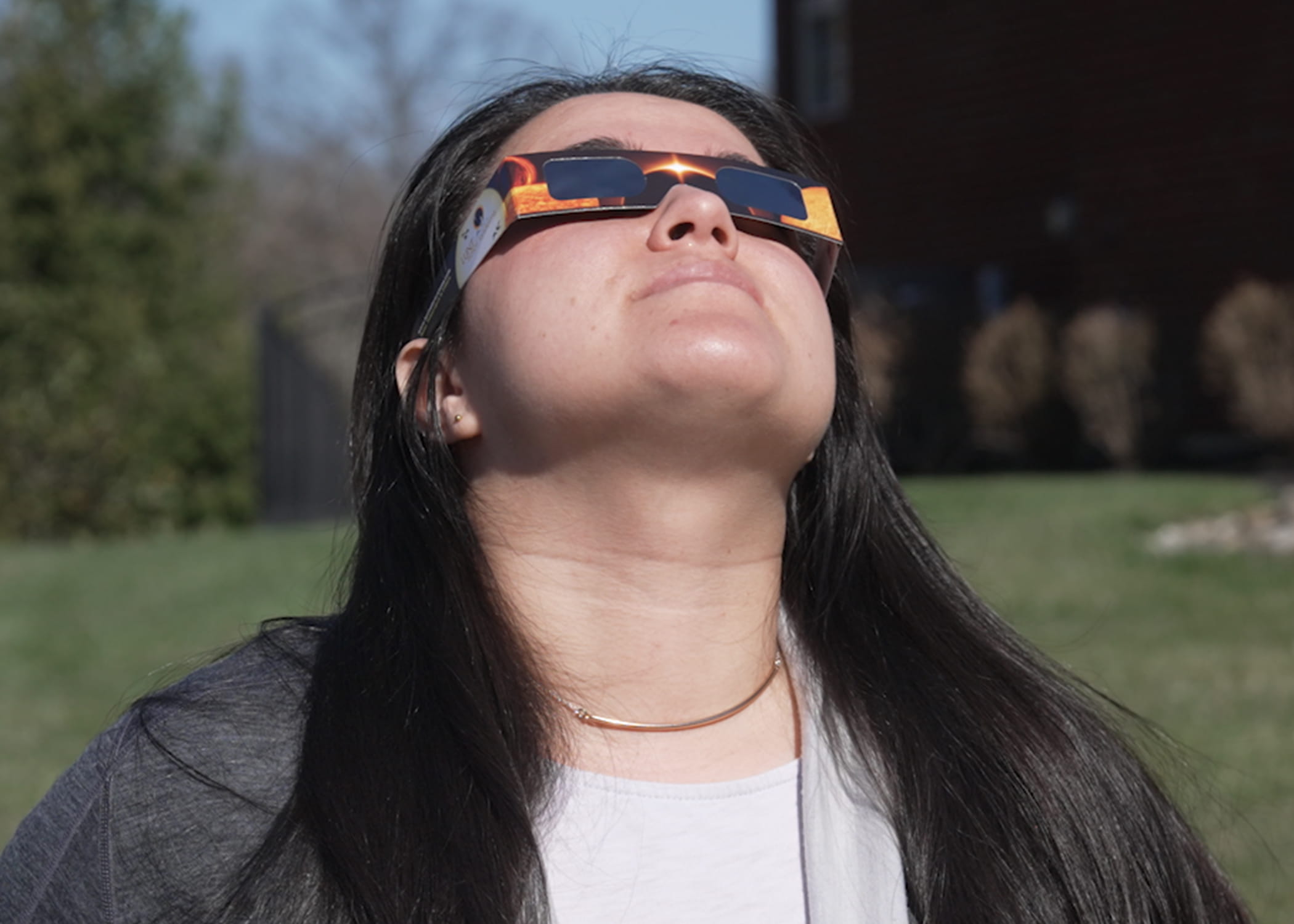April 2, 2024
COLUMBUS, Ohio – As excitement grows in the United States for the total solar eclipse on April 8, a new survey from The Ohio State University Wexner Medical Center finds nearly 30% of Americans don’t know looking at a solar eclipse without protection can cause permanent eye damage.
 Of the 1,006 Americans polled, more than 10% believe an eclipse can cause natural disasters, sleep problems and mental health issues.
Of the 1,006 Americans polled, more than 10% believe an eclipse can cause natural disasters, sleep problems and mental health issues.
“The survey results highlight the need for more community education about the true dangers associated with a total eclipse,” said Nicholas Kman, MD, emergency medicine physician at Ohio State Wexner Medical Center and clinical professor of emergency medicine at The Ohio State University College of Medicine. “We can’t stress enough the importance of proper eye protection, but people also need to have a plan for emergencies.”
A total solar eclipse happens when the moon passes between the Earth and the sun, causing periods of darkness across parts of the country. The path of totality where viewers can see the sun’s corona or outer atmosphere is a popular tourist destination. According to NASA, about 32 million Americans live in areas along the path of totality. Many others have plans to travel to see it. This may cause crowding and increases in traffic.
 “Rural parts of the country may not have the infrastructure to handle high traffic and large crowds,” said Kman, who is a member of a FEMA Urban Search and Rescue Team. “People should expect long waits in traffic and bring essential supplies with them.”
“Rural parts of the country may not have the infrastructure to handle high traffic and large crowds,” said Kman, who is a member of a FEMA Urban Search and Rescue Team. “People should expect long waits in traffic and bring essential supplies with them.”
In addition to wearing specialized eclipse glasses that comply with the ISO 12312-2 international standard or creating an eclipse projector using a cardboard box, Kman recommends preparing for the total solar eclipse like you would for a potential disaster.
- Know the risks: Looking at the sun without proper eye protection can permanently damage the retina. Large crowds have the potential for crush injuries or children becoming separated from parents and caregivers. High use of public WiFi can cause channel overcrowding leading to slow internet speeds or difficulty connecting.
- Make a plan: Discuss your eclipse viewing plans with family members and travel companions. Make travel arrangements and expect to remain in that location hours after the eclipse ends. If you are separated from your group, discuss how you will find each other.
- Gather supplies: Create an emergency kit with food, water, first aid supplies, medications, cell phone charger, weather-appropriate clothing and a map. Make sure you have a full tank of gas and cash. Bring a solar filter, eclipse glasses or a pinhole projector.
“The total solar eclipse is a rare event and we want people to be safe as they enjoy it,” Kman said.
Survey methodology
This study was conducted by SSRS on its Opinion Panel Omnibus platform. The SSRS Opinion Panel Omnibus is a national, twice-per-month, probability-based survey. Data collection was conducted from February 2– February 4, 2024 among a sample of 1006 respondents. The survey was conducted via web (n=976) and telephone (n=30) and administered in English. The margin of error for total respondents is +/- 3.5 percentage points at the 95% confidence level. All SSRS Opinion Panel Omnibus data are weighted to represent the target population of U.S. adults ages 18 or older.
###
Media Contact: Serena Smith, Wexner Medical Center Media Relations, serena.smith@osumc.edu
